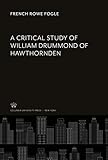Exhaustion : A History / Anna K. Schaffner.
Material type: TextPublisher: New York, NY : Columbia University Press, [2016]Copyright date: ©2016Description: 1 online resource (304 p.)Content type:
TextPublisher: New York, NY : Columbia University Press, [2016]Copyright date: ©2016Description: 1 online resource (304 p.)Content type: - 9780231900645
- 9780231538855
- 152.1886 23
- BF482 .S33 2016
- BF482 .S33 2017
- online - DeGruyter
- Issued also in print.
| Item type | Current library | Call number | URL | Status | Notes | Barcode | |
|---|---|---|---|---|---|---|---|
 eBook
eBook
|
Biblioteca "Angelicum" Pont. Univ. S.Tommaso d'Aquino Nuvola online | online - DeGruyter (Browse shelf(Opens below)) | Online access | Not for loan (Accesso limitato) | Accesso per gli utenti autorizzati / Access for authorized users | (dgr)9780231538855 |
Browsing Biblioteca "Angelicum" Pont. Univ. S.Tommaso d'Aquino shelves, Shelving location: Nuvola online Close shelf browser (Hides shelf browser)

|

|

|

|

|

|

|
||
| online - DeGruyter Regimes of Historicity : Presentism and Experiences of Time / | online - DeGruyter Who's Afraid of Academic Freedom? / | online - DeGruyter Short Selling : Finding Uncommon Short Ideas / | online - DeGruyter Exhaustion : A History / | online - DeGruyter The Lumière Galaxy : Seven Key Words for the Cinema to Come / | online - DeGruyter Why We Dance : A Philosophy of Bodily Becoming / | online - DeGruyter The Highway of Despair : Critical Theory After Hegel / |
Frontmatter -- CONTENTS -- ACKNOWLEDGMENTS -- Introduction -- 1. Humors -- 2. Sin -- 3. Saturn -- 4. Sexuality -- 5. Nerves -- 6. Capitalism -- 7. Rest -- 8. The Death Drive -- 9. Depression -- 11. Burnout -- Epilogue: The Future -- NOTES -- BIBLIOGRAPHY -- INDEX
restricted access online access with authorization star
http://purl.org/coar/access_right/c_16ec
Today our fatigue feels chronic; our anxieties, amplified. Proliferating technologies command our attention. Many people complain of burnout, and economic instability and the threat of ecological catastrophe fill us with dread. We look to the past, imagining life to have once been simpler and slower, but extreme mental and physical stress is not a modern syndrome. Beginning in classical antiquity, this book demonstrates how exhaustion has always been with us and helps us evaluate more critically the narratives we tell ourselves about the phenomenon.Medical, cultural, literary, and biographical sources have cast exhaustion as a biochemical imbalance, a somatic ailment, a viral disease, and a spiritual failing. It has been linked to loss, the alignment of the planets, a perverse desire for death, and social and economic disruption. Pathologized, demonized, sexualized, and even weaponized, exhaustion unites the mind with the body and society in such a way that we attach larger questions of agency, willpower, and well-being to its symptoms. Mapping these political, ideological, and creative currents across centuries of human development, Exhaustion finds in our struggle to overcome weariness a more significant effort to master ourselves.
Issued also in print.
Mode of access: Internet via World Wide Web.
In English.
Description based on online resource; title from PDF title page (publisher's Web site, viewed 02. Mrz 2022)


